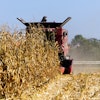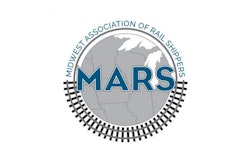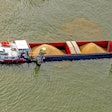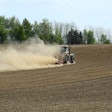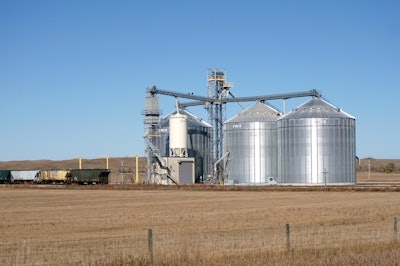
The National Grain and Feed Association (NGFA) has outlined recommended actions for Congress to incentivize better rail service, improve trucking capacity and continue modernizing U.S. inland waterways.
NGFA submitted the comments for the House Transportation and Infrastructure Committee’s February 1 hearing on the state of transportation infrastructure and supply chain challenges.
NGFA urged Congress and the Surface Transportation Board (STB) to take appropriate action to provide clearer rules to incentivize better rail service and prevent a repeat of rail service failures that escalated in 2022.
“The impact of unreliable rail service is felt across the NGFA membership, lowering production and increasing the cost of transportation of ethanol, biodiesel, soybean oil, soybean meal, flour, animal feed, meat and other products derived from grain and feed,” NGFA noted. “Too much of the cost of unreliable and unchallengeable rail service is borne by rail customers, agricultural producers and the general public.”
NGFA supports several rail provisions
- Congressional passage of another STB reauthorization, which expired in 2020, with an eye toward fostering competition in the freight rail system
- The Reliable Rail Service Act, introduced by Sen. Tammy Baldwin, D-Wisc., in the last Congress, to better define rail carriers’ common carrier obligation
- STB’s pending reciprocal switching rules to enable the creation of rail-to-rail competition at qualifying interchanges
- STB’s efforts to require additional data reporting, particularly for first-mile/last-mile rail service
- STB rules to incentivize rail carriers to more efficiently use customer-owned railcars
- Removing constraints on STB’s investigative authority
- Expanding STB’s enforcement ability for rail carriers that do not comply with STB orders
NGFA also urged Congress to add trucking capacity and efficiency by increasing truck weight limits and recommended congressional oversight of the Water Resources Development Act (WRDA) investments to modernize locks and dams.
Barges on the Mississippi River and Columbia-Snake River Systems move about half of all grains to export grain elevators, NGFA noted, and critical farm inputs like fertilizer, feed and fuel are transported via the inland waterways system.
View NGFA’s full comments to the House Transportation and Infrastructure Committee here.

